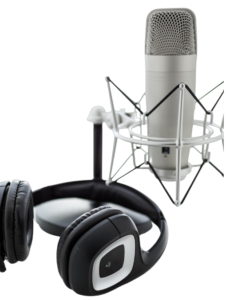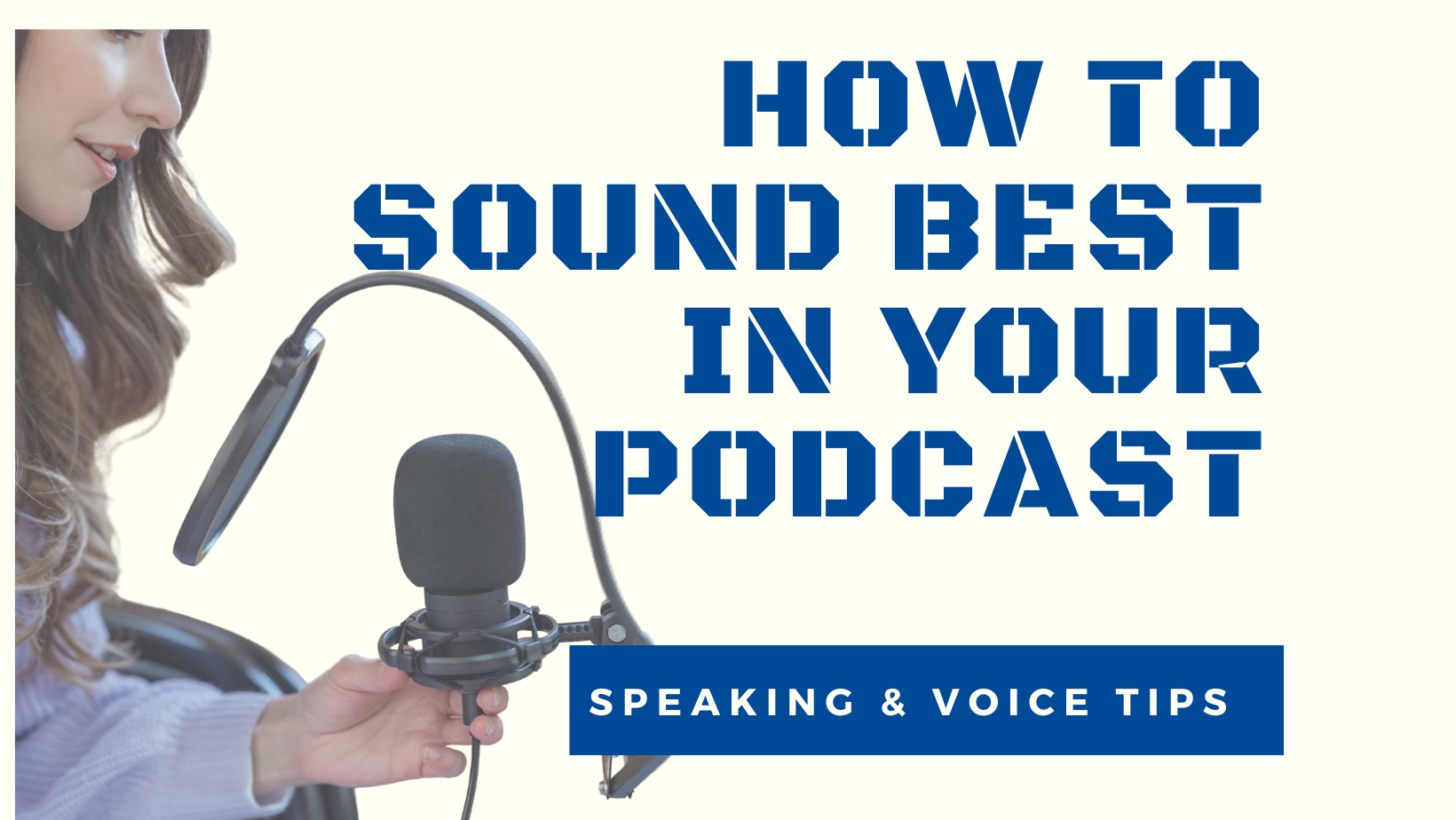In today's digital age, anybody with a laptop can create and publish their own podcast. But have you ever wondered how to really make your voice pop a
In today’s digital age, anybody with a laptop can create and publish their own podcast. But have you ever wondered how to really make your voice pop and stand out against the competition?
While some people are naturally gifted storytellers who can convey emotions through their voices, it doesn’t mean that this is an unattainable skill for the rest of us. With practice and technique, anyone can learn how to use their voice more effectively in order to express themselves better without losing touch with their unique style or personality.
If you’re interested in boosting your podcasting abilities, stick around! We’ve put together a bunch of useful tips that will help you improve your vocal skills. So let’s jump right in and start creating awesome content!
14 Tips On How To Sound Best On Your Podcast

Invest In Quality Equipment
Before you start your podcast, it’s really important to check that your equipment is working well. Even if you have a great voice, poor quality gear can make your message less engaging. You don’t need the most expensive gear out there, but good quality equipment does help. So, take some time to check over your microphone and headphones – they’re both crucial for a top-notch broadcast.
If you’re looking for a comprehensive guide on the essential gadgets needed for podcasting, be sure to check out this category on ‘Best Podcast Tools.’
Record Podcast In The Right Environment
Another one is establish a recording environment unless you have the privilege of utilizing a podcasting studio. Poor audio quality can frustrate listeners, leading to low engagement rates and fewer subscribers.

The environment should be quiet and free of any external noises or distractions. This helps to avoid any background noise that can interfere with the audio, making it difficult for listeners to hear the message clearly. A quiet environment also ensures that the audio is consistent throughout the recording, making it easier to edit and produce the final product.
Warm Up Your Voice
Before you start recording, make sure to warm up your voice. This is especially important if you’re recording first thing in the morning without a natural vocal warm-up. Remember, a warm and engaging tone can really draw in your listeners.
Try not to record straight after waking up because your voice likely won’t be at its best. Also, after sleeping for a while, you might be dehydrated. So take about 30 minutes to an hour before starting to hydrate yourself, get your vocal cords ready and mentally prepare for what’s ahead.
Here are two simple strategies you can use to warm up your voice before recording a podcast.
Both methods aim for a similar result – helping your voice sound more lively and engaging for listeners due to increased familiarity with what you’re discussing. |
Slow Down When Speaking
Effective communication requires more than just delivering a message hastily. Rushing and stumbling over words can compromise the quality of your message and leave your audience feeling overwhelmed. Instead, focus on delivering your message with precision and emphasis, ensuring it resonates with your listeners.

Remember, effective communication isn’t just about broadcasting information – it’s about connecting with your audience and leaving a lasting impact.
Allow your audience the opportunity to fully savour your performance. As you examine your script, take notice of the segments that necessitate a faster tempo to heighten their emotional impact. And identify areas where a deliberate pace is needed to generate suspense and allow for reflection. Strive for a warm and engaging demeanour throughout your delivery.
Make Pauses
Watch any great speaker, and you’ll see how they use silence effectively. They pause to highlight important points, take a breather before moving onto the next part, or give their audience time to really understand what they’ve said.

A lot of people listen to podcasts while doing other things like driving, housework or cleaning. This means they might not always be fully focused on what they’re listening to. Therefore, it’s really important to add pauses in the podcast from time to time so you can get their attention back and keep them interested.
Experiment With Enunciation
To sound more professional on your podcast, try working on how you speak. Fine-tuning the way you pronounce words and adjusting your voice can make it sound more polished and refined.

Practicing your vocal style is essential and can be done by recording yourself, listening carefully to the playback, and making necessary corrections. Feel free to try out different styles until you find one that suits you best. Listen for any part of your speech that is hard to hear or understand.
Ask people who know you well for their feedback on your recordings. Make sure they think it sounds like you and ask if they have any suggestions for improvement.
 Pay Attention To Your Speaking Volume
Pay Attention To Your Speaking Volume
To communicate effectively, it’s important to speak up and make your points clearly. You shouldn’t need to shout or constantly seek approval from those you’re talking to. Also, don’t mumble or force people to strain their ears just to hear what you’re saying.
If possible, using audio editing tools can help improve the loudness and quality of your voice after recording.
Try finding a speaking volume that feels natural for you but also shows confidence. It should be comfortable for others to listen too. Being able to change how loud or soft you talk as well as your tone can really help when trying to highlight certain points in a conversation and keep people engaged with what you have say.
Watch Your Posture
Maintaining good posture is a crucial element in producing a high-quality and resonant voice.
| Sit Up Straight
It is recommended to maintain an upright position and expand your chest, facilitating deep breathing and thus enhancing vocal strength and clarity. Conversely, slouching over a low-lying table to access the microphone constrains the diaphragm, impeding breathing and undermining vocal quality. Likewise, it is advisable to acquire a boom arm for your microphone. Or alternatively, elevate it on a stack of books if your desk stand is diminutive. Additionally, it is important to take into consideration the ergonomics of your chair.
|
| Stand While Recording
Professional voice-over artists often choose to record standing up rather than sitting down for legitimate reasons.
|
Practice Breathing
Using the right breathing techniques can greatly improve your voice quality. By focusing on your breath, you can increase airflow and make your voice louder and clearer.

Regular breathing exercises can enhance your voice’s overall quality and sound by improving lung capacity and diaphragm strength.
- Practice silent breathing to eliminate big gasping breaths.
- Recognize sentences that require faster delivery and take breaths before or after to avoid losing breath mid-sentence.
- When positioning your microphone, it is advisable to control your head movements to minimize sound interference.
Incorporating these exercises into daily routines can produce a more robust and versatile voice, adding depth and colour to your content.
Be Upbeat And Positive
A podcast host with a monotone voice can be detrimental to the listener’s experience. Such a voice can swiftly diminish any enthusiasm or eagerness the listener may have had before starting the episode.

People naturally feel drawn towards others who are positive, lively and full of energy. On the other hand, they tend to avoid those who seem sad or uninterested at social events. So, to keep your podcast interesting and engaging for your audience, make sure you don’t speak in a dull tone.
Spend 30 minutes before recording each episode of your podcast getting yourself mentally and emotionally ready. During this time, try to create an upbeat mindset. Do things that raise your energy levels like going over talking points, listening to music, chatting with a friend or having some coffee.
Smile When You Are Speaking

Believe it or not, smiling can make a big difference in the quality of your podcast. When you smile, your face muscles tighten up and lift the soft palate at the back of your throat. This opens up your airway for better airflow, giving you a clear and rich voice.
Smiling also helps project your voice so that listeners can hear you more clearly.
But there’s another reason to flash those pearly whites – it affects how people perceive your show. A smile brings out positivity and excitement which is infectious to listeners. They’ll feel more engaged with what they’re hearing, making them more likely to stick around for future episodes.
Just remember though – while a cheerful tone works for most podcasts, consider if it suits yours based on its content. If you’re discussing serious subjects then perhaps constant smiles might not fit!
Protect Your Voice
As a podcaster, your voice is your main instrument. It is imperative to prioritize its care with the same level of attention as your valuable microphone.
- Stay hydrated: Drink plenty of water to keep your vocal cords lubricated.
- Avoid smoking and alcohol: These can dry your vocal cords and cause irritation.
- Take breaks: Don’t push your voice too hard. Take breaks between recordings to rest your voice.
- Have a good sleep: Engage in a prolonged, uninterrupted period of sleep during the night to facilitate the regeneration of the body’s muscles, including those responsible for respiration and vocalization.
- Moderate consumption of beverages: Consuming beverages such as coffee, milk, dairy products, and carbonated drinks may cause dryness and a diminished vocal tone. It is recommended to exercise moderation when consuming them before recording to mitigate any potential risks associated with these effects.
- Avoid screaming or yelling: This can damage your vocal cords and cause hoarseness.
- Seek medical attention if necessary: If you experience persistent hoarseness or other vocal problems, consult a doctor or speech therapist.

Pay Attention To Vocal Bad Habits
Do you engage in any other vocal behaviours that could potentially interfere with the listener’s ability to focus? Do you tend to smack your lips or frequently clear your throat? Do you use filler words such as “um” or “like” when transitioning to a new thought? If so, you may be exhibiting unfavourable vocal habits.
While these speaking habits may not seem a big deal in everyday chat, they can really annoy and put off podcast listeners. So, it’s important to work on reducing these tendencies. By doing this, your audience will appreciate you more and the quality of your podcast will greatly improve.
Practice! Practice! And Practice!
Improvement in any field requires dedicated effort, and enhancing your podcasting voice is no exception. Regular oral exercises can significantly aid in infusing your recordings with vibrancy and liveliness. Through such practices, you can employ appropriate intonations judiciously, perfect your delivery of pauses and cadences at punctuation marks, and master the art of using your voice to express varied emotions.
It is recommended to record yourself while engaging in these exercises to monitor your progress and identify areas that require further refinement.

Achieving the Perfect Podcast Voice: Tips to Help You Sound Best
Your voice is one of the most important tools for effectively conveying your message to your audience. How you speak can significantly influence how your content is received, making it a valuable asset.
By following the tips outlined in this article, you can improve the quality of your voice and deliver a polished and professional podcast. Remember to stay relaxed, speak clearly, and engage your audience, and with time and effort, you can sound best and create a successful podcast.
Kindly share your feedback on whether this guide assisted you in creating your podcast.




COMMENTS